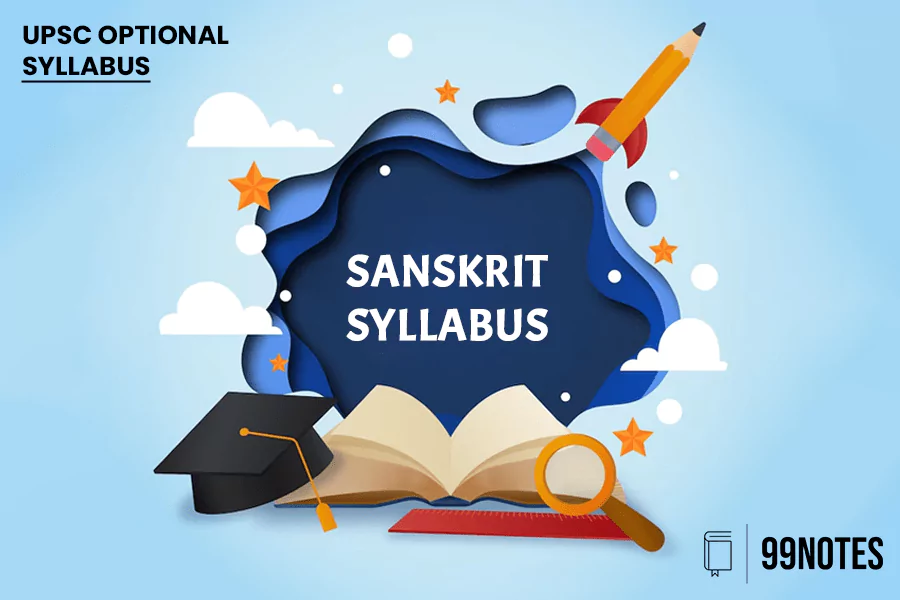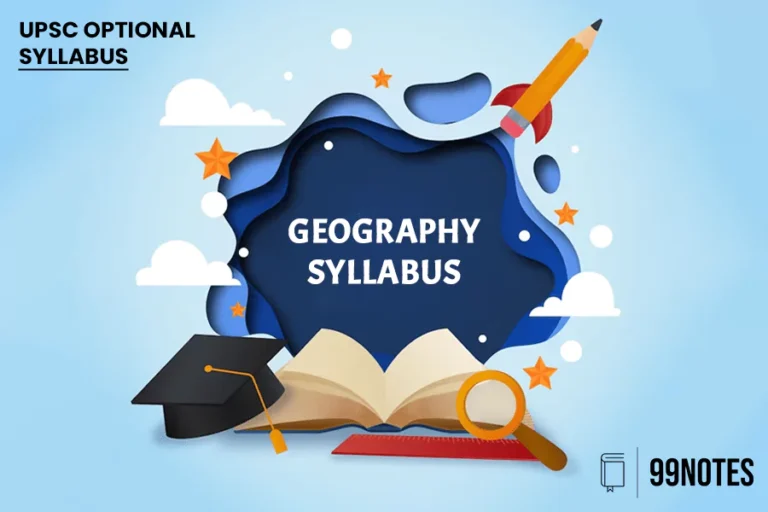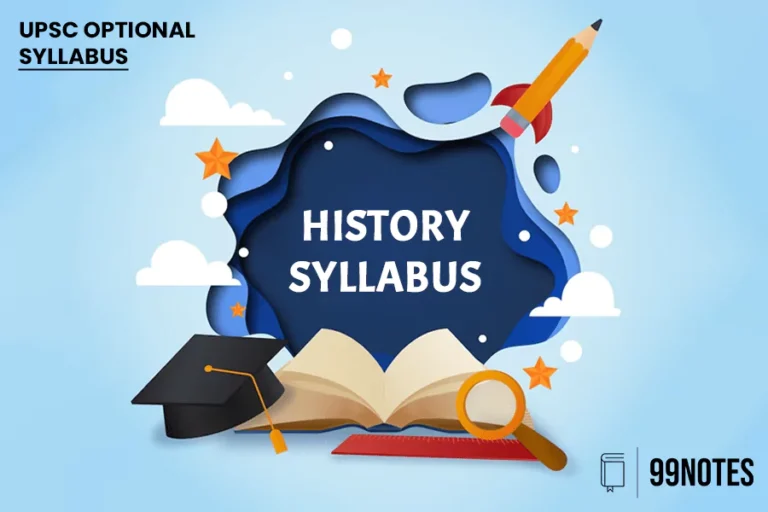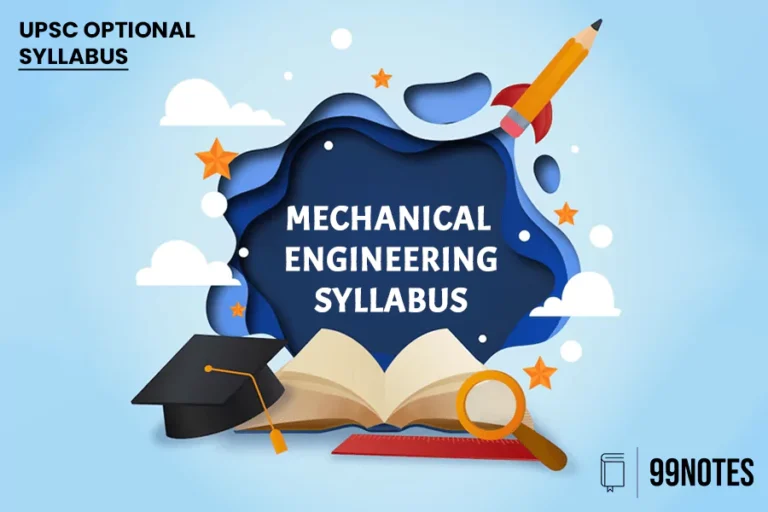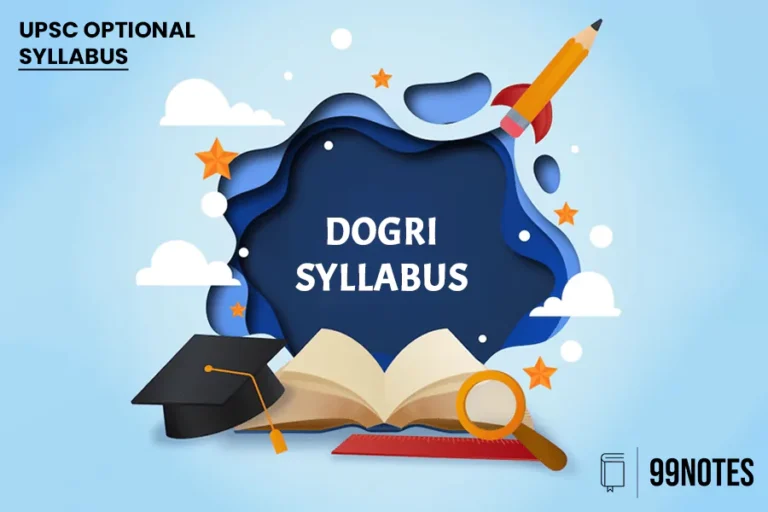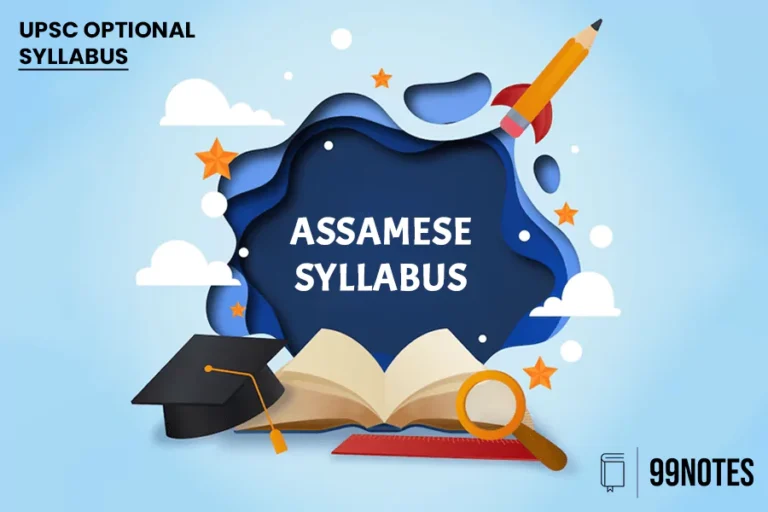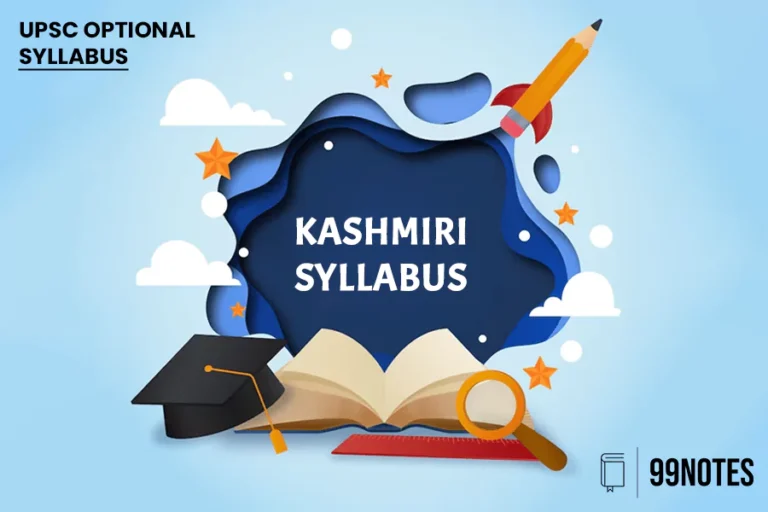UPSC Sanskrit Optional Syllabus pdf for IAS Mains 2024
UPSC Sanskrit Optional Syllabus
➼ CLICK HERE TO DOWNLOAD: Sanskrit Optional UPSC Syllabus pdf
UPSC Sanskrit Optional Syllabus Paper‐I
There will be three questions as indicated in the Question Paper which must be answered in Sanskrit. The Remaining questions must be answered either in Sanskrit or in the medium of examination opted by the candidate.
Section A
-
Significant features of the grammar, with particular stress on Sanjna, Sandhi, Karaka, Samasa, Kartari and Karmani vacyas (voice usages) (to be answered in Sanskrit).
-
(a) Main characteristics of Vedic Sanskrit language
(b) Prominent feature of classical Sanskrit language
(c) Contribution of Sanskrit to linguistic studies
-
General Knowledge of :—
(a) Literary history of Sanskrit
(b) Principal trends of literary criticism
(c) Ramayana
(d) Mahabharata
(e) The origin and development of literary geners of : Mahakavya Rupaka (drama) Katha Akhyayika Campu Khandakavya Muktaka Kavya.
Section B
-
Essential of Indian Culture with stress on :
(a) Purusãrthas
(b) Samskãras
(c) Varnãsramavyavasthã
(d) Arts and fine arts
(e) Technical Sciences.
-
Trends of Indian Philosophy
(a) Mïmansã
(b) Vedãnta
(c) Nyaya
(d) Vaisesika
(e) Sãnkhya
(f) Yoga
(g) Bauddha
(h) Jaina
(i) Carvãka
-
Short Essay (in Sanskrit)
-
Unseen passage with the questions (to be answered in Sanskrit).
UPSC Sanskrit Optional Syllabus Paper‐II
Note: Question from Group 4 is to be answered in Sanskrit only.
Note: Questions from Groups 1, 2 and 3 are to be answered either in Sanskrit or in the medium opted by the candidate.
Section A
General study of the following groups :—
Group 1
(a) Raghuvamsam—Kalidasa
(b) Kumarasambhavam—Kalidasa
(c) Kiratarjuniyam—Bharavi
(d) Sisupalavadham—Magha
(e) Naisadhiyacaritam—Sriharsa
(f) Kadambari—Banabhatta
(g) Dasakumaracaritam—Dandin
(h) Sivarajyodayam—S.B. Varnekar
Group 2
(a) Isãvãsyopanisad
(b) Bhagavadgitã
(c) Sundarakanda of Valmiki’s Ramayana
(d) Arthasastra of Kautilya
Group 3
(a) Svapanavasavadattam—Bhasa
(b) Abhijnanasakuntalam—Kalidasa
(c) Mricchakatikam—Sudraka
(d) Mudraraksasam—Visakhadatta
(e) Uttararamacaritam—Bhavbhuti
(f) Ratnavali—Sriharshavardhana
(g) Venisamharam—Bhattanarayana
Group 4
Short notes in Sanskrit on the following :—
(a) Meghadutam—Kalidasa
(b) Nitisatakam—Bhartrhari
(c) Pancatantra—
(d) Rajatarangini—Kalhana
(e) Harsacaritam—Banabhatta
(f) Amarukasatakam—Amaruka
(g) Gitagovindam—Jayadeva.
Section B
This section will require first hand reading of the following selected texts :—
Note: Questions from Groups 1 & 2 are to be answered in Sanskrit only
Note: Questions from Groups 3 and 4 are to be answered either in Sanskrit or in the Medium opted by the candidate.
Group 1
(a) Raghuvamsam—CantoI, Verses 1 to 10
(b) Kumarasambhavam—Canto I, Verses1 to 10
(c) Kiratarjuniyaue—Canto I, Verses 1 to 10
Group 2
(a) Isavasyopanisad—Verses—1, 2, 4, 6, 7, 15 and 18
(b) Bhagavatgita II Chapter Verses13 to 25
(c) Sundarakandam of Valmiki Canto15, Verses 15 to 30 (Geeta Press Edition)
Group 3
(a) Meghadutam—Verses 1 to 10
(b) Nitisatakam—Verses 1 to 10 (Edited by D.D. Kosambi Bharatiya Vidya Bhavan Publication)
(c) Kadambari—Sukanasopadesa (only)
Group 4
(a) Svapnavasavadattam Act VI
(b) Abhijnansakuntalam Act IV Verses 15 to 30 (M.R. Kale Edition)
(c) Uttararamacaritam Act I Verses 31 to 47 (M.R. Kale Edition).

